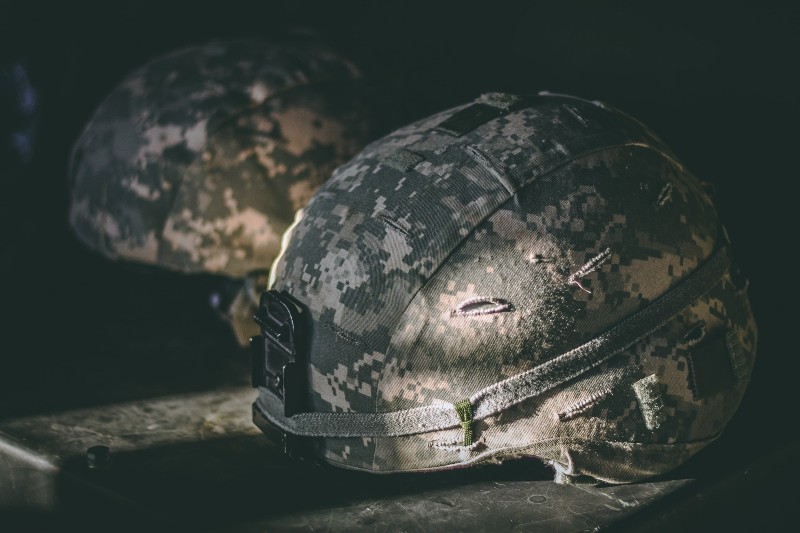
A drunk driving charge or driving while intoxicated (“DWI”) charge is always a serious accusation and carries severe criminal penalties.
For individuals enlisted in the military, a drunk driving charge can also inflict negative military penalties.
You can face a demotion from your assignment, a demotion in rank, mandatory counseling, a reduction in pay, and in certain situations, you may even be separated from the military.
Many service members come to San Antonio, or Military City, USA, for basic training as they’re beginning their military careers.
This means there are large groups of new service members and experienced service members in the San Antonio area working to create the next generation of military service members.
With San Antonio’s large population size and cultural characteristics, San Antonio law enforcement are aware of the population’s proclivity for drunk driving in San Antonio and are specifically trained to investigate and arrest those suspected of driving while intoxicated.
In fact, DWI cases in San Antonio have risen every year in the past three years. For all of these reasons, DWI charges for military service members commonly take place in Military City, USA.
These added military drunk driving penalties vary based on the branch of the military and the details of the case. If you face a DWI in the military, consult an experienced San Antonio DWI attorney as soon as possible.
A DWI military conviction can derail your service record and career aspirations. Let our team at Austin Hagee Law Firm explain the DWI process and help you secure a favorable outcome in your case.
Impact of a DWI—Military Drunk Driving Penalties
Texas criminalizes the operation of a motor vehicle while intoxicated by drugs or alcohol, along with every other state. The Uniform Code of Military Justice (UCMJ) Article 111 states that any military service member who operates or physically controls a vehicle, aircraft, or vessel while drunk or impaired by drugs or alcohol shall be punished as a court-martial may direct.
A court-martial is the judicial system for military branches. The court-martial has jurisdiction over any crime a military service member commits, whether it occurs on military property or not. The court-martial process is entirely separate from the Texas criminal justice process.
A military service member’s commanding officer can still impose non-judicial penalties against them. Military discipline can affect your ability to get promoted or restrict your day-to-day privileges on base.
Drunk Driving in the Army
Army service members are subject to Article 111 and may be subject to disciplinary action. The Army DWI policy for discipline typically depends on the specific facts of the case.
The commanding officer can refer the drunk driving matter for full court-martial or initiate non-judicial punishment under UCMJ Article 15. Non-judicial penalties available under Article 15 include:
- Confinement,
- Extra duty,
- Reduction of rank,
- Forfeiture of pay, or
- Separation from the military.
The individual’s commanding officer can also impose Administrative Action punishment like mandatory alcohol counseling or letters of reprimand.
Navy service members are subject to the same drunk driving laws as Army service members under the UCMJ. The commanding officer has discretion over imposing non-judicial penalties in lieu of a formal court-martial.
The proceedings for non-judicial penalties in the Navy are called the Captain’s Mast. The commanding officer can also impose administrative action, such as:
- Suspension of pass privileges,
- Mandatory alcohol or drug counseling,
- Letters of reprimand,
- Loss of driving privileges, or
- Involuntary separation.
Absent a waiver, the Navy requires administrative separation for service members who receive a second or subsequent drunk driving conviction during their careers. This rule only applies to those who began their career after June 4, 2009.
Drunk Driving in the Marines
Marines are subject to military discipline for drunk driving under Article 111. A Marine’s commanding officer holds decision-making authority over the punishment issued for a DWI. Thus, getting a DWI while in the US Marines is similar to getting a DWI in the US Army. Non-judicial penalties available include:
- Reduction in rank,
- Forfeiture of pay,
- Confinement to base, or
- Extra duty.
Your commanding officer can also impose administrative action or refer the matter for court-martial. A formal court-martial is especially likely when the offense occurs on the military base.
If a service member has multiple drunk driving incidents, the commanding officer may recommend administrative separation.
Drunk Driving in the Air Force
Air Force service members are prohibited from drunk driving while on or off duty under Article 111. The commanding officer has discretion over imposing non-judicial penalties in lieu of a formal court-martial. The commanding officer can also impose administrative action, such as:
- Suspension of pass privileges,
- Mandatory alcohol or drug counseling,
- Letters of reprimand,
- Loss of driving privileges, or
- Involuntary separation.
A commanding officer can impose non-judicial penalties and administrative penalties against you, even if you are convicted in state court. Although a DWI will not automatically end an Airman’s career, it can make them ineligible to be promoted on their next enlisted performance report cycle.
Texas DWI Penalties—Generally
If a military service member is arrested for DWI away from their military base, they can face criminal charges in the state courts of the county where the offense occurred. Texas imposes severe penalties for DWI convictions and increases those penalties for subsequent convictions.
A first DWI conviction carries a possible jail sentence of up to 180 days and a fine of up to $2,000. A second DWI conviction requires a three-day jail sentence, and if you do time instead of probation, a second DWI carries a possible jail sentence of between 30 days and 1 year and a fine of up to $4,000.
A third DWI conviction carries a possible prison sentence of between 2 and 10 years and a fine of up to $10,000.
The monetary penalties of a DWI can cause serious issues for service members who are also facing the forfeiture or reduction of their pay. In some cases, a DWI attorney can negotiate with the prosecutor to minimize the punishment and total value of the fines levied against you.
We know that financial penalties can affect you and your family. Our team will do whatever we can to keep these penalties to a minimum. This may include transferring your case to Veterans’ Court, helping you build a comprehensive mitigation defense, or working to get your case dismissed.
Are You a Military Service Member Facing DWI Charges in Texas? Contact Austin Hagee Law Firm Today
Our military criminal defense lawyers at Austin Hagee Law Firm have more than a decade of experience defending the rights of those facing DWI charges, including military service members.
We are familiar with the added penalties you will incur from the military. With these penalties in mind, we will do whatever we can to negotiate a favorable outcome in your case.
Our attorneys have prior experience as district attorneys and know what tactics the government uses to secure plea agreements that are unfavorable to defendants and secure questionable convictions.
We can review the circumstances of your case with you and determine if a legal defense applies. If you have other questions like, “how does the National Guard handle a DWI?” or, “can I still get into the military with a DWI?” our team can help.
Contact Austin Hagee Law Firm to talk to a DWI lawyer about your case today.
